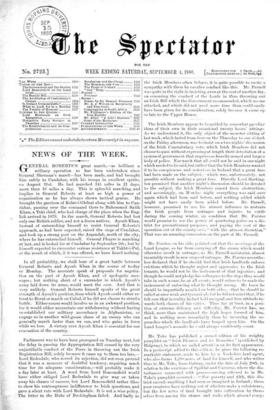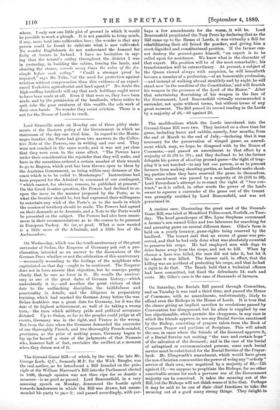Mr. Tuke has publishel a second edition of his weighty
pamphlet on " Irish Distress and its Remedies " (published by Ridgway), to which we called atienfin on its first appearance. In a postscript added to this claim, be gives the following re- markable statement, made to him by a Yorkshire land agent, who also farms 1,200 acres of land for himself, and who writes 'thus to Mr. Tuke, from Galway, under the date of July 29th, in relation to the evictions of Spiddal and Carraroe, where the dis- turbances connected with process-serving referred to in Mr. Tuke's pamphlet occurred :—" For poverty and filth, this dis- trict exceeds anything I had seen or imagined in Ireland ; these poor creatures have nothing out of which to make a subsistence, but the few acres of land brought into cultivation by them- selves from among the stones and rocks which abound every.
where. I only saw one little plot of ground in which it would be possible to work a plough. It is nct possible to bring much, if any, more land into cultivation here; the wonder is that any person could be found to cultivate what is now cultivated. No wonder Englishmen do not understand the demand for fixity of tenure in Ireland. I have no hesitation in say- ing that the tenant's outlay throughout the district I was in yesterday, in building the cabins, fencing the lands, and clearing the stones, exceeds many times the value of the fee- simple before such outlay." " Could a stronger proof be required," says Mr. Tuke, "of the need for protection against eviction without compensation than this evidence of an experi- enced Yorkshire agriculturist and land agent P" No doubt the high-sniffing landlords will say that such holdings ought never to have been made at all. Even if that were so, they have been made, and by the permission of the landlords, whose notice to quit robs the poor creatures of this wealth, the sole work of their own hands. No wonder they resist eviction. There is a nut for the House of Lords to crack.



































 Previous page
Previous page